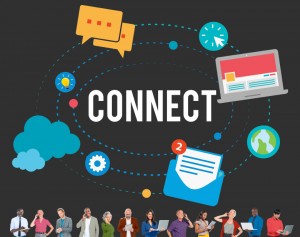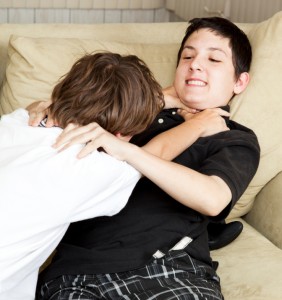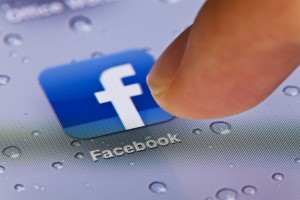There isn’t a day that goes by without reading the future of communications is digital and interactive, heck, I should know I am in the business of delivering communications in the form of payslips, letters, invoices, cheques, statements sent to customers either in digital or paper format.

Earlier this year I felt I had reached online overload. The internet, social media, blogging, Instagramming, Facebooking I felt overwhelmed and under so much pressure because being online is an important aspect of business marketing.
I needed a digital detox.
When the school summer holidays finally arrived I made the decision to go offline.
Oddly it wasn’t even a conscious decision more a case of I just couldn’t be bothered or see the point, I had lost all desire and I really wanted to get away from the falseness of social media and shut down.


My eldest son and my husband noticed an improvement in their eyesight because they were spending more time outside rather than stuck in front of a screen for 8-10 hours’ a day.
My decision was vindicated when I happened to find Ofcom’s 

This report validated my choice of staying offline during the summer holiday.
According to the report 15,000,000 of us have undertaken a ‘digital detox’ with the report highlighting the need for people to seek time away from the internet and spend time with friends and family.
One in three adult internet users (34%) has sought a period of time offline, 25% spent up to a day internet free, 20% took a week off and 5% went web free for almost a month.
According to the report many people had said that being offline was liberating.
I can certainly vouch for that after all, this isn’t world breaking news.
Getting away from online digital distractions and having the opportunity of an extended summer holiday allowed me to get in touch with the real world.
I fell out of the everyday work routine and made a few changes which, had a huge beneficial impact on my mind and body.
Whether your are a director, manager of a business, overseeing a department of people, ensuring smooth operations, whatever the business or your job title does not give you the option of turning everything off. Customer emails and calls need to be responded too, a complete ‘digital detox’, in other words, turning everything off completely isn’t feasible.
Faster internet access enables us to be better connected than ever before, three in four of internet users (75%) consider the web intrinsic to their everyday lives and adult users in the UK spend an average of one day per week, approximately 25 hours online.
59% of internet users consider themselves compulsively connected to their devices and 34% find it difficult to disconnect.
I had unwittingly become one of those compulsive phone checkers, grabbing the phone every time it pinged.
Everything we do has an effect on us either physically, mentally and emotionally.
In Noel Janis-Norton’s book “Calmer, Easier, Happier Screen 

“Screen time is one aspect of our children’s lifestyle that parents worry about the most and often feels powerless to do anything about.
Children are affected by every aspect of electronics: how much screen time they have, what they are doing in front of the screen, when and where they do it and with whom. All of these factors will influence a child’s mood, her behaviour, what she thinks about herself and her family, her friends and her teachers.”
Although the book primarily talks about screen time for children; the same is applicable to adults. We are more likely to be in front of a screen and online for significantly longer periods during the working day than children.
- Too much screen time means we are more sedate, we move less, we burn less calories and this has resulted in us being overweight and unfit than the last generation.
- Nutrition is affected, screens are absorbing which leads to mindless eating of junk food. It is much easier to grab high sugar, high fat snacks rather than make a nutritious meal.
- Being on the screen for longer than four hours results in lower levels of well being
- Screen use affects the brain like a drug to the point where we are demotivated to do anything else other than stay in front of the screen
And I had fallen into the same additive, compulsive routine of being online from the moment I wake up ‘checking in’ to going to bed and ‘checking out’.
Omnipresent, but, in reality I wasn’t ‘there’ it took this summer vacation to make me realise how much I overuse technology.


What made my internet overuse more evident was my children’s apparent lack of interest and attention because they too were absorbed with their devices.
Rather than switching everything off I developed a digital routine for the holidays which, has now become part of my working life habit.
- Check emails first thing when rising in the morning, lunchtime and finally after the evening meal. I worked in the morning before heading to the beach between 1-2PM. Back at work I follow the same routine.
- I chose to stay off social media altogether only posting fun things to Facebook and Instagram but allowed myself the occasional timed 15 minutes online(approximately 5 times in 6 weeks) when I would check notifications and respond to any conversation I thought was interesting or funny. Back at work I still haven’t gone back online fully but my intention is to do 20 minutes whilst I cook the evening meal. This routine does not disrupt my working day and ensures that I don’t get absorbed by social media wasting work time.
- I muted the phone and set it on vibrate so I couldn’t hear the notification ping but would know if there was a call. This hasn’t changed other than when I am available I will turn the mute button off.
What changed for me?
I read four books, caught up on reading a whole host of other stuff, had many conversations on the beach with my family when we walked, I exercised daily, cleared my mind out fully, discovered and now use a great app called ‘Headspace’.

I had changed. I feel more calm and relaxed than I have done in a long time. I regrouped, reconnected with the real world, had face to face conversations and heated discussions, I telephoned customers and friends instead of emailing and saved a heap of time.
Digital detoxing is like being on a diet, you work hard to achieve your desired weight only to start back on the bad eating habits once you reach your goal.
Totally switching off from the internet and the online world is impractical, I would love to, permanently, save for ordering from Amazon.
There are more advantages to using the internet than there are disadvantages, the key is breaking the habit so it doesn’t seep into your life insidiously, like kicking a smoking habit, small steps that are sustainable and achievable.
Like many of you I thought that “I really didn’t use the internet that much, not really, but I did”.




